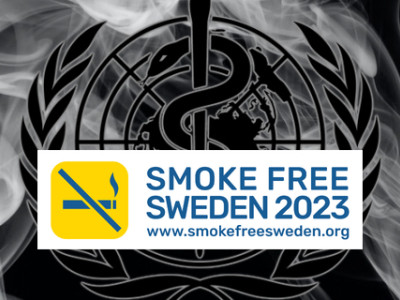The study links higher prevalence of smoking with 6 socioeconomic and/or health-related disadvantages:
- Unemployment
- Poverty
- Low education
- Disability
- Psychological distress
- Heavy drinking
The team found that 13.8% people not experiencing these disadvantages smoked. The rate climbed the more disadvantages experienced, culminating with a 58.2% rate for those experiencing most or all of the disadvantage groups.
Adam Leventhal, professor of preventive medicine and psychology at the Keck School of Medicine of USC and one of the paper’s authors, stated: “It’s striking that these six unique disadvantages, each of which are very different from one another, all add up to the same smoking outcome. They just keep piling on your risk of smoking.”
“The steep decline in smoking among Americans we’ve seen this decade is near historic. Our results show that nearly all of this reduction was concentrated in people with little or no disadvantage, despite recent tax hikes on smoking, stricter cigarette regulation and available quit aids.”
“Disadvantage is a common denominator in smoking in the U.S. today, and if you face more disadvantages, your liability to smoking increases. Disparities in smoking are explained by disadvantaged populations being more likely to start smoking and less likely to quit smoking.”
“If you are experiencing a lot of stress, whether it’s because you’re unemployed, struggling with an alcohol problem, or coping with mental illness, there’s evidence you’re more liable to smoke to manage stress. People also smoke for pleasure. If you are limited in your life about the types of things you can do for fun because of your income or disability, it is understandable why you would turn to a product that instantly and reliably delivers pleasure, like a cigarette.”
Leventhal concluded: “Until we can do something about the life circumstances that drive disadvantaged populations to smoke, encouraging them to quit may be an uphill battle.”
The paper lies at odds with the messages being put out by Leventhal’s USC and the previous work done by him and Jessica Barrington-Trimis.
USC’s website news section contains a huge list of papers focussed on teenage use of electronic cigarettes. Likewise, Leventhal and Barrington-Trimis have been produced junk science on the subject over the years. In March, we wrote about how the UKECRF pulled apart their study associating vaping with teen progression to smoking.
One comment summed up the disjointed approach to the work: “This study did not assess whether those who had tried e-cigarettes became regular smokers, and likely includes those only experimenting with smoking or e-cigarettes. No conclusions can be made from this study about a causal association between e-cigarette use and regular smoking or vice versa.”
If Adam Leventhal seriously believes that smoking within disadvantaged communities requires addressing then perhaps he should stop working to undermine the role played by vaping in smoking cessation and tobacco-harm reduction.
Resources:
- “Association of Cumulative Socioeconomic and Health-Related Disadvantage With Disparities in Smoking Prevalence in the United States, 2008 to 2017” by Leventhal, Bello, Galstyan, Higgins, and Barrington-Trimis - bit.ly/2VqfL89
Dave Cross
Journalist at POTVDave is a freelance writer; with articles on music, motorbikes, football, pop-science, vaping and tobacco harm reduction in Sounds, Melody Maker, UBG, AWoL, Bike, When Saturday Comes, Vape News Magazine, and syndicated across the Johnston Press group. He was published in an anthology of “Greatest Football Writing”, but still believes this was a mistake. Dave contributes sketches to comedy shows and used to co-host a radio sketch show. He’s worked with numerous vape companies to develop content for their websites.
Join the discussion
Do It Swedish-Style
Health advocates have urged policymakers to replicate Smoke-Free Sweden by “doing it Swedish-Style”
Harm Reduction For The Rich
The United Kingdom risks becoming a harm reduction country only for the wealthy, according to Michael Landl of the World Vapers’ Alliance
A Missed Opportunity at COP10
The Smoke Free Sweden movement says that COP10 was a missed opportunity to save millions of lives
Doctors call for ban
Doctors call for prescription-only vapes in a letter to The Times under the guise of protecting children – ignoring the impact a similar approach has had in Australia












